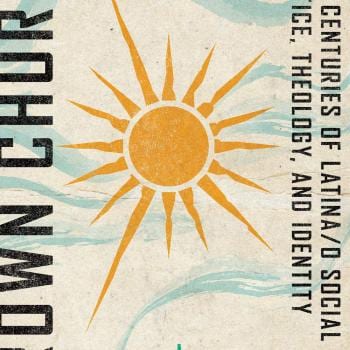Barack Obama's approval rating among black voters is in free-fall, down fully 7 percent from recent highs, plummeting down, down, down to . . .
85 percent.
Yes, that's the low. 85 percent. Think about that number for a moment. Think about the difficulty in getting 85 percent of Americans to agree on anything. Less than 85 percent of Americans believe that al Qaeda was solely responsible for the 9/11 attacks. Less than 85 percent of Americans believe Barack Obama was born in the United States. Heck, we probably even have 20 percent or so who can't even agree that Michael Jordan was the greatest basketball player who ever lived. Throw five Americans in a room, and you're likely to get one or two contrarians.
But not when it comes to the black vote. With majorities at or near 90 percent year after year after year, it redefines the term "monolithic." It's difficult to overstate the importance of African-American support to the Democratic Party. Without the black vote, there would not be a single Democratic president since Lyndon Johnson in 1964. Without the black vote, all of the major Midwestern states would swing decisively Republican, and Democratic majorities would be concentrated in tiny, electorally insignificant coastal clusters and middle-American urban enclaves.
The cultural consequences of monolithic voting are immense. Because black voters keep Democrats in power, abortion remains legal. Because black voters keep Democrats in power, our education system remains in the hands of a corrupt and ineffective public school monopoly.
This is a great deal for Democrats (and for a tiny black political elite) but a terrible deal for African-Americans in general. And it's high time it changed.
Black voters have not always been such staunch Democrats. Traditionally Republican, African-American voters swung to the Democratic Party with Franklin D. Roosevelt. Even after Roosevelt, the black vote was still in play, with Dwight D. Eisenhower receiving 39 percent in 1956 and Richard Nixon (yes, Richard Nixon) garnering a respectable 32 percent in 1960.
What changed? Lyndon Johnson, Barry Goldwater, and the Civil Rights Act of 1964. Although the Civil Rights Act passed with substantial Republican support (indeed, Republicans supported it at much higher percentages than Democrats, with 80 percent of House Republicans and 82 percent of Senate Republicans voting for the bill, compared to 60 percent of Democrats in support), the top of the ticket matters, and Barry Goldwater voted against the Civil Rights Act (because, he explained, you can't "legislate morality") while Lyndon Johnson was a prime mover for the bill.
The rest, as they say, is history. Johnson got 94 percent of the black vote in 1964, and the Democrats haven't looked back since. In fact, African-Americans have become so firmly identified as the core Democratic constituency that Republican strategists for two generations haven't bothered to craft a serious plan for reaching blacks. Instead they are frequently accused (sometimes credibly) of exploiting racial differences to maximize white support.
If African-Americans were Republicans once, they can be Republican again. If their votes were fiercely fought for just after World War II, we can fight for them again. And we should. In fact, the time is right.
At this cultural and historical moment, other core Democratic constituencies—public employee unions and the academic, feminist elite—stand directly opposed to African-American interests in two key arenas: education and abortion.
It's been almost sixty years since Brown v. Board of Education, and the achievement gap between black and white students remains vast. Billions of dollars have poured into majority-minority school districts; per-pupil spending has skyrocketed; the national Democratic Party and all its local affiliates have become virtual extensions of the teachers' unions, voting ever-higher wage and benefit increases. And yet the gap persists.
There are alternatives to pouring more money into the teacher's union, public school educational abyss. Conservative education reforms—from vouchers to tax credits to expanded charter schools—are popular with millions of black students and parents. They also happen to work. Yet widespread reform is stubbornly blocked by a Democratic Party beholden to a near-fanatical union base.
Movies like Waiting for Superman and The Lottery demonstrate the heartbreaking human toll of our broken educational system. Conservatives should be at the forefront of breaking the cycle of failure and revitalizing education through a commitment to equality of opportunity. For desperate black parents, conservatives can and should offer a ray of hope.





